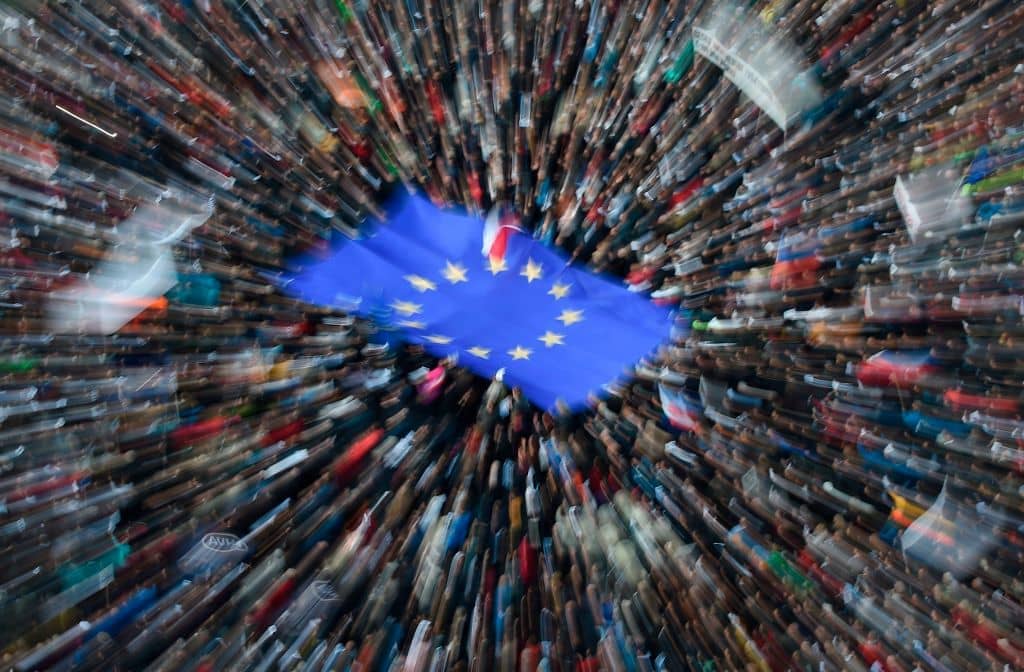Eurosceptics in central Europe suffered a blow this weekend, as pro-EU coalitions won a slender majority in the Czech parliament. With the nation’s president hospitalised a day after the vote, it is unclear when exactly the new government will assume power. But when they do, Brussels will breathe a deep sigh of relief.
SPOLU, a coalition of three parties united by their antipathy towards Czech prime minister Andrej Babiš, won a narrow victory. Together with another coalition comprising the Czech Pirate party – and an alliance of mayors and independents (Pirates+STAN) – groups with a pro-EU bent can now command a slender majority in the Czech parliament. They have already signed a joint statement of intent to form a new government.
Babiš’s ANO party are not explicitly anti-EU, but the prime minister has adopted increasingly eurosceptic rhetoric recently. His big hope of forming a new government appeared to be as part of a partnership with the anti-immigrant, anti-EU Freedom and Direct Democracy (SPD) party, which made a ‘Czexit’ referendum a condition of entering government before the election. Now his plans are in tatters. When the final votes were counted, pro-EU coalitions won 43 per cent; the eurosceptic ANO and SPD parties gained just 37 per cent.
It’s not clear where Babiš losing grip on power leaves this anti-Brussels alliance
EU membership remains a contentious issue in the Czech Republic, where public levels of euroscepticism are among the highest in the bloc. Yet the speed with which five Czech opposition parties – which have little in common other than the intense loathing they share for Babiš – shows that many are still keen to speak up for the merits of the EU. These parties see themselves as the saviours of a ‘European Czech Republic’ – much as Donald Tusk is portraying himself as the champion of ‘European Poland’ across the border.
But the result is not necessarily a complete victory for forces keen on greater EU integration. The strongly pro-EU Czech Pirate party were left humiliated by their more conventional coalition partners, only picking up four seats compared to the 22 they won at the last election. The Civic Democrats, by far the largest party in the new coalition, take what they describe as a ‘sober’ approach to Brussels, seeing membership more as a necessity than a cause for celebration.
The diverse political programmes of parties in the new coalition may also cause problems. It is unclear, for example, how the new government would act on that issue so totemic of ‘EU values’ in central Europe: LGBT+ rights. The Czech Pirate party openly supports gay marriage – but the leader of the Civic Democrats, Petr Fiala, has said that his view of marriage is a traditional one: that of a union between a man and a woman. The leader of the Christian Democrats, another coalition party member, previously said he ‘cannot imagine’ participating in a government which would support gay marriage.
Nonetheless, the removal of Babiš will mean the loss of a powerful ally for other rebellious Visegrád Four governments. The Visegrád bloc had begun to pose as an alternative ‘bloc-within-a-bloc’ due to a predominance of traditionalist leaders opposed to the EU on a range of issues from LGBT+ rights to migration.
It’s not clear where Babiš losing grip on power now leaves this anti-Brussels alliance. The accession of a pro-EU government in the Czech Republic certainly makes it much more difficult for leaders in Hungary and Poland to claim a regional sense of opposition to the EU. Traditionally-minded voters in more rural parts of the Czech Republic may be upset at the potential loss of national identity as ‘EU values’ are embraced by a new coalition government; but voters in more metropolitan areas will be relieved that the black mark against the country’s name on the international stage may soon be erased.
For now, Brussels will be pleased with the outcome of the Czech election. But in a country split almost in half on perceptions of the EU, a narrow victory for pro-EU forces won’t end the debate about the bloc’s influence on Czech politics.
Will the Czech election start a new era in relations with the Visegrád Four? Don’t bet on it. But this result certainly marks a blow to the idea that a tide of euroscepticism that started with Brexit is sweeping across the continent.







Comments